What are AI agents?
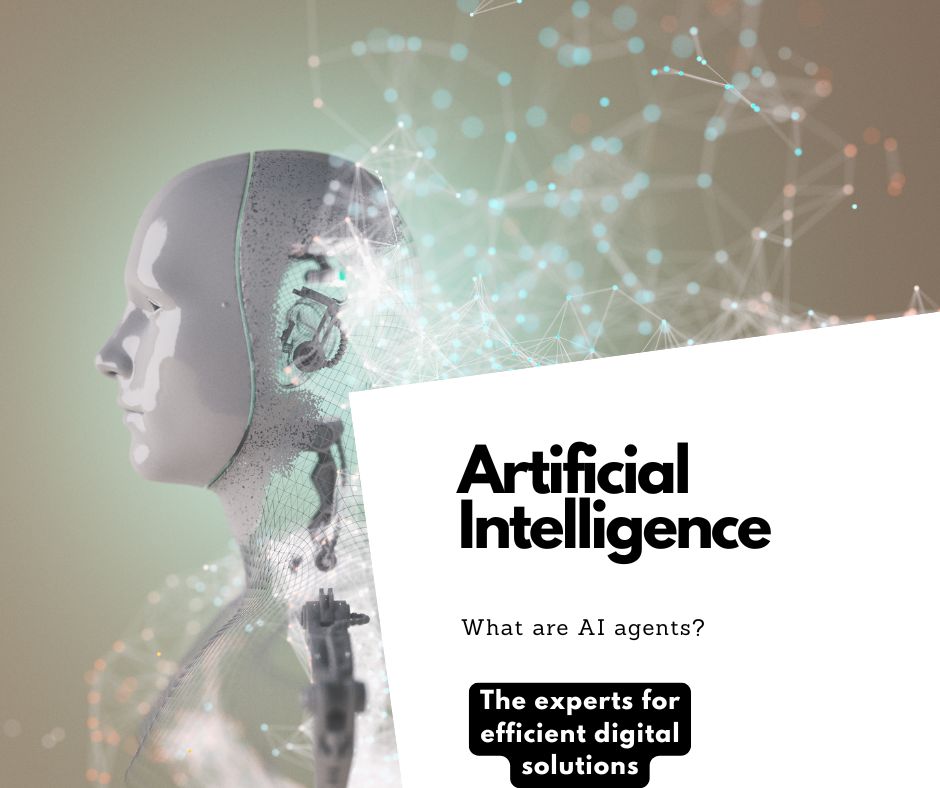
Artificial intelligence (AI) and automation are playing an increasingly central role in the digital transformation. AI agents are one of the most exciting developments that enable companies to optimize processes, increase efficiency and improve the customer experience. But what exactly are AI agents? They are programs that use algorithms and machine learning to perform tasks autonomously or to act as an interactive interface between humans and machines.
In this article, we take a detailed look at AI agents: We define what they are, explore their different types and how they work. We also shed light on the relevance of AI agents for companies, both large corporations and SMEs, and highlight the benefits they offer. Using concrete case studies, we will illustrate how companies can benefit from implementing these technologies. Let’s dive into the world of AI agents together and discover how they are shaping the future of corporate digitization.
What are AI agents?
AI agents are advanced software solutions that use artificial intelligence (AI) to perform tasks autonomously or act as an interactive interface between humans and machines. They are used in a wide range of applications, from chatbots in customer service to intelligent virtual assistants that provide information and support complex decisions.
Basic concepts of AI agents
Differences to traditional software solutions
Unlike traditional software applications, which often offer fixed workflows and limited interactions, AI agents are characterized by their ability to adapt to dynamic environments and user needs. While traditional systems rely on predefined programming, AI agents use intelligent algorithms to learn from data and act proactively.
Overall, AI agents represent a significant advance in software development, helping companies to increase efficiency, improve the user experience and make data-driven decisions.
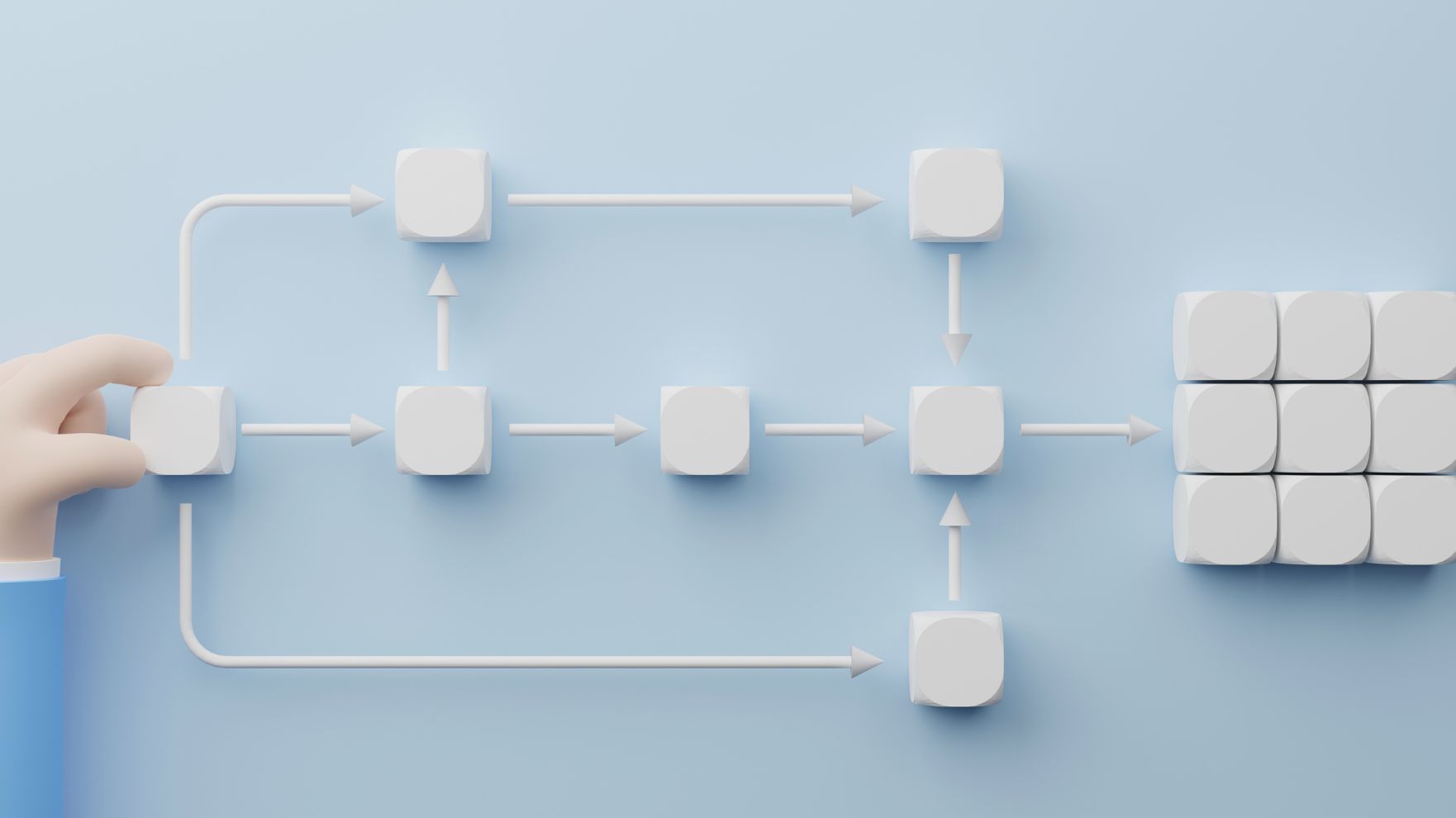

Typical areas of application for AI agents
AI agents are used in a wide range of industries and applications. They help to optimize business processes and improve interaction with customers. Here are some of the typical areas of application for AI agents:
Customer service and support
AI agents are revolutionizing customer service by being available around the clock and providing immediate support. They can handle common customer queries automatically, allowing human employees to focus on more complex problems. Examples include:
Marketing and personalization
In the marketing sector, AI agents help to create personalized experiences for users. They analyse user data in order to make targeted recommendations and optimize marketing campaigns. Typical applications include
Automation of business processes
AI agents help to automate recurring tasks and business processes, which increases efficiency and productivity. This can be done in various areas, for example:
Financial and risk analyses
Another important area of application for AI agents is in the financial sector, particularly in the performance of risk analyses and the automation of financial transactions. These agents can:

How do AI agents work?
AI agents work through a combination of algorithms, data processing and machine learning to make autonomous decisions and perform tasks. The operation of an AI agent involves several key steps and technologies that work together to enable effective interaction with users and other systems.
Data processing
The functioning of AI agents begins with the collection and processing of data. They use large amounts of data, which can come from various sources, such as:
- User input: Information that users provide through questions, requests or interactions.
- External data sources: Data that is retrieved from APIs, databases or online resources.
This data is used to support the AI agents in analysis and decision-making.
Natural Language Processing (NLP)
An important aspect of many AI agents, especially chatbots and virtual assistants, is the ability to process natural language (NLP). NLP enables agents to understand and interpret human language. This includes:
- Speech recognition: The conversion of spoken language into text.
- Text analysis: The interpretation and analysis of the text in order to recognize intentions and meanings.
NLP enables AI agents to communicate effectively with users and respond to requests.
Machine learning and artificial intelligence
AI agents use machine learning algorithms to learn from experience and improve over time. This means:
- Training data: The agents are trained with large amounts of historical data in order to recognize patterns and correlations.
- Adaptability: By continuously learning from new data and interactions, they can optimize their performance and refine their decisions.
This learning process enables AI agents to adapt to changing environments and user needs.
Decision making
AI agents make autonomous decisions based on the processed data and learned knowledge. This is often done by:
- Rule-based systems: Simple decision logic based on predefined rules.
- Predictive models: Advanced models that make predictions based on patterns in the data.
It is this decision-making process that enables AI agents to complete tasks efficiently and process user requests quickly.
Interaction with users
The final phase in the functional process is interaction with users. AI agents can communicate with users in various ways:
- Text-based interfaces: Via chats or messaging platforms.
- Voice-controlled systems: Using voice commands via smart speakers or mobile devices.
- Graphical user interfaces: In apps or websites that provide visual information.
Through these interaction methods, AI agents create a user-friendly experience that meets the user’s needs.
Relevance of AI agents for large and medium-sized companies
AI agents are playing an increasingly central role for companies of all sizes, especially large and medium-sized enterprises. The implementation of these intelligent systems offers numerous advantages that are directly tailored to the challenges and needs of these organizations.
Increased efficiency and cost savings
For many companies, increasing efficiency is a decisive factor in competition. AI agents can automate repetitive and time-consuming tasks, allowing employees to focus on more value-adding activities. This not only leads to significant cost savings, but also to higher productivity. By using AI agents, companies can reduce their operating costs and increase the efficiency of their business processes at the same time.
Improving the customer experience
In today’s digital world, customer experience is a key competitive factor. AI agents enable companies to provide round-the-clock support and process requests in real time. This leads to higher customer satisfaction as users receive quick responses and customized solutions. Especially for medium-sized companies that may not have the resources to employ extensive customer service teams, AI agents can be a cost-effective solution to ensure high-quality service.
Data analysis and decision-making
Large companies often have huge amounts of data that need to be analyzed in order to make informed decisions. AI agents can help to process this data and gain valuable insights. By automating data analysis, companies can identify trends, anticipate market changes and make strategic decisions based on accurate information. This is particularly important for companies operating in dynamic markets.
Flexibility and scalability
As a company grows, its requirements and challenges also change. AI agents offer a flexible and scalable solution that allows companies to respond quickly to change. Whether it’s supporting new product launches or managing seasonal fluctuations in customer volumes, AI agents can be easily adapted to meet the specific needs of the business.
Competitive advantage
At a time when digital transformation and innovation are at the forefront, AI agents can help a company stand out from the competition. By utilizing cutting-edge technologies, companies are positioning themselves as pioneers in their industry, boosting customer confidence and opening up new business opportunities.
The relevance of AI agents for large and medium-sized companies is undeniable. Not only do they offer solutions to increase efficiency and save costs, but they also improve the customer experience and support data-based decision-making. In a rapidly changing business world, AI agents are a valuable tool to successfully meet the challenges of the future.
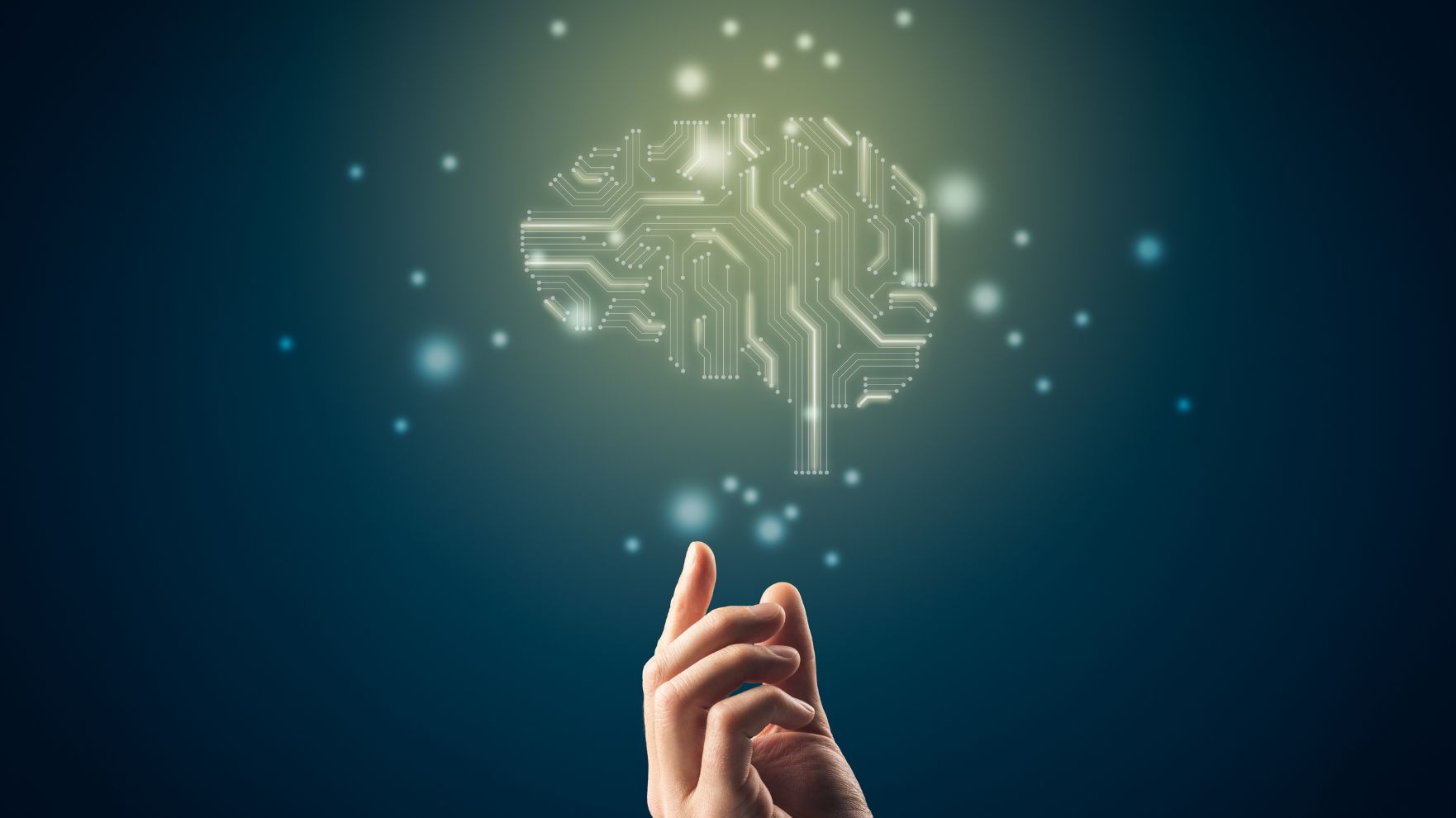
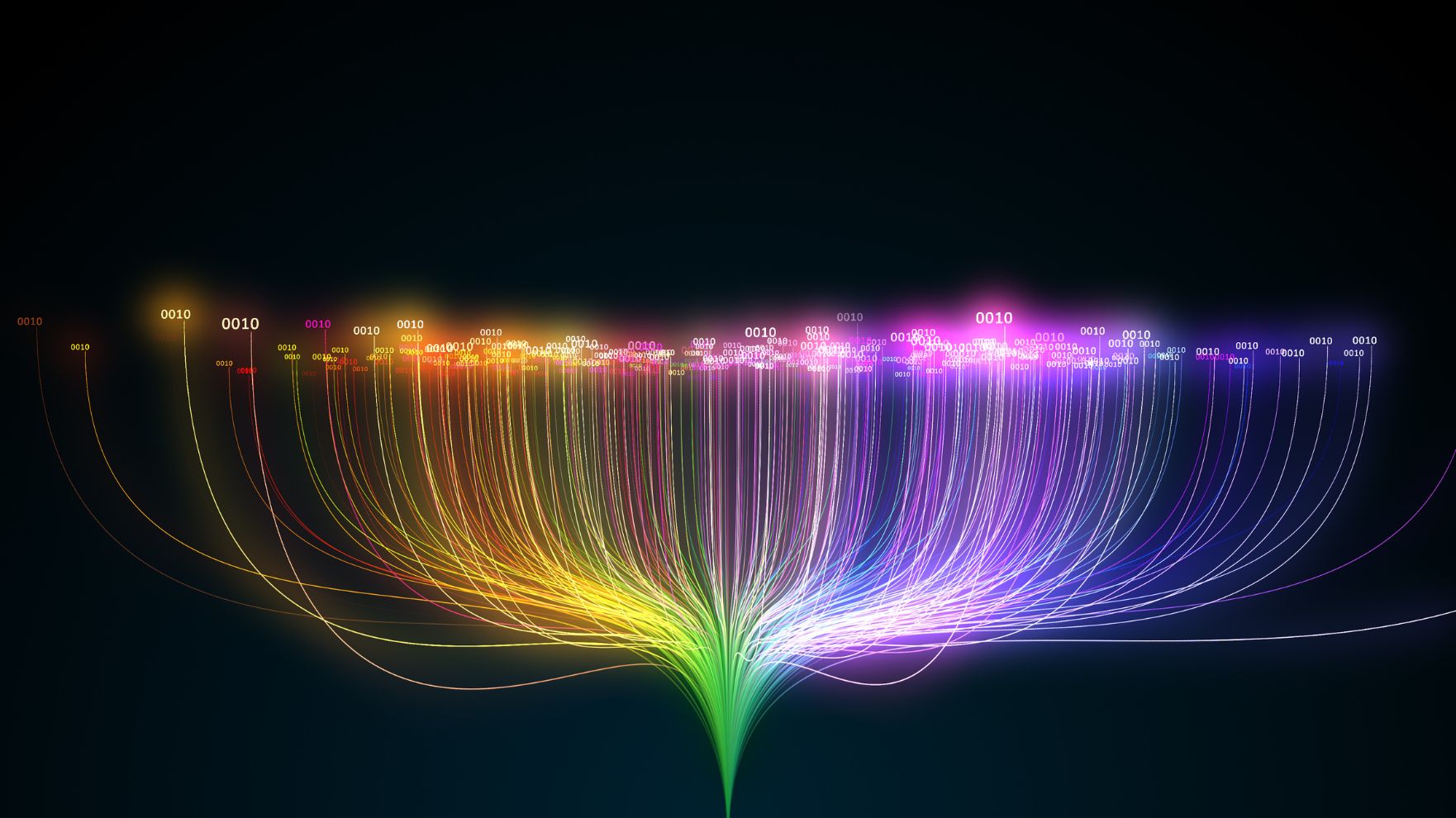
Case study 1: Implementation of a chatbot for an e-commerce provider
Background:
An e-commerce provider was struggling to cope with the increasing number of customer queries in its support team. Customer service agents were overworked, resulting in longer wait times and dissatisfied customers. To increase efficiency and improve the customer experience, the company decided to introduce an AI-powered chatbot.
Solution:
DMG was brought in as an external service provider to support the e-commerce provider with the implementation of a chatbot. We conducted a comprehensive analysis of the most common customer queries and developed a customized chatbot that was able to answer common questions, track orders and resolve issues in real time. The chatbot was integrated into the website and mobile app to provide customers with easy access.
Result:
After introducing the chatbot, the company was able to reduce response times by 50% and significantly increase customer satisfaction. The support team was relieved of recurring requests, allowing them to focus on more complex issues. This led to an overall increase in efficiency and a better shopping experience for customers.
Case study 2: Development of a virtual assistant for a service company
Background:
A medium-sized service company wanted to optimize its internal processes and improve interaction with its customers. The manual processing of customer inquiries and the provision of information were time-consuming and inefficient. The company therefore decided to implement a virtual assistant to automate communication and increase efficiency.
Solution:
DMG was engaged to develop the virtual assistant, which was tailored to the specific needs of the service company. We worked closely with the client to identify the most common requests and interactions. The virtual assistant was programmed to be able to make appointment bookings, provide information and respond to customer queries in real time.
Result:
After implementing the virtual assistant, the company significantly reduced the time required to process customer inquiries. The efficiency of internal processes improved considerably, as employees now had more time for strategic tasks. Customers appreciated the fast and reliable support, which led to increased customer satisfaction and loyalty.
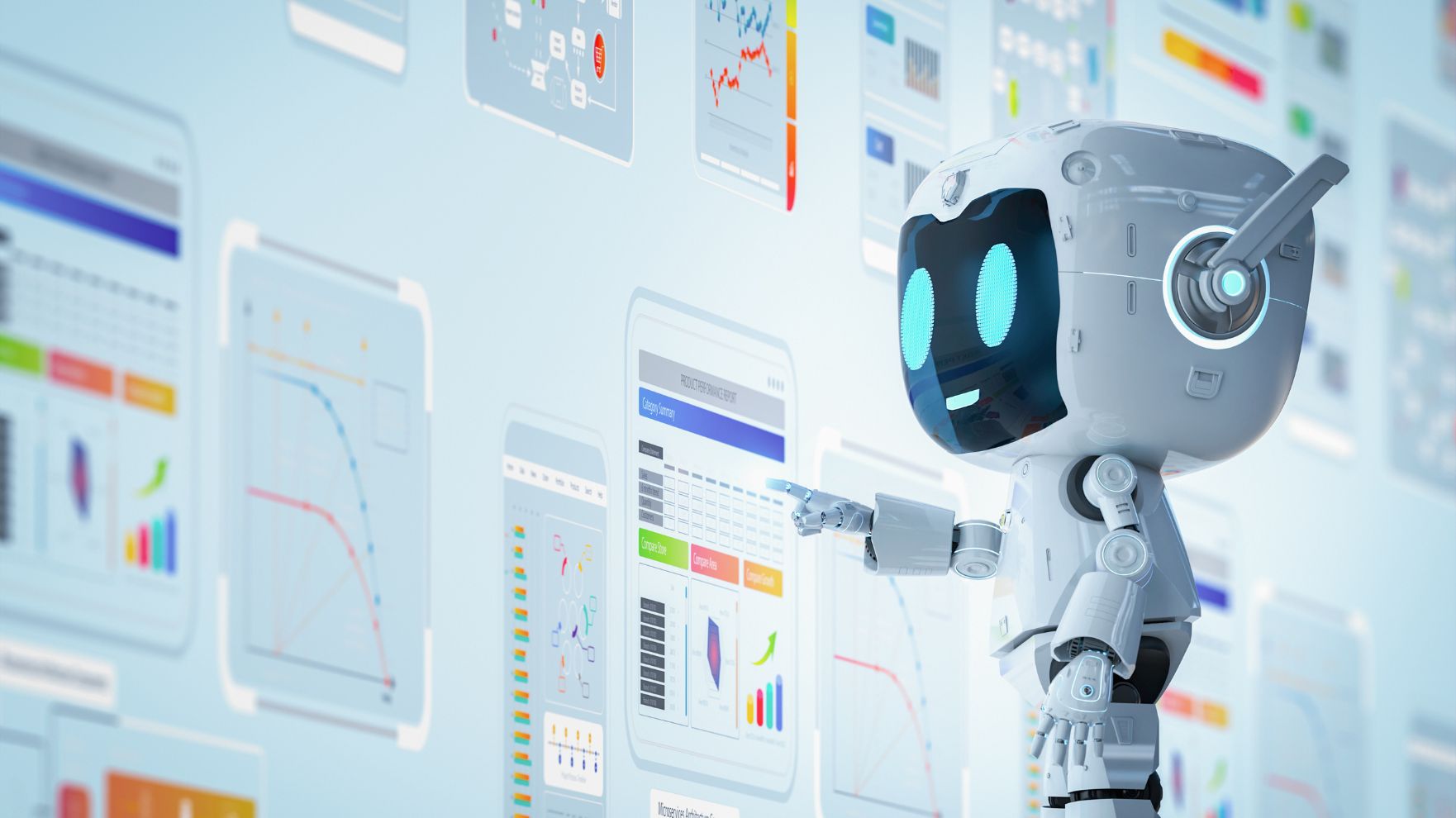

Key performance indicators for AI agents
In order to evaluate the success of AI agents and continuously improve their effectiveness, it is crucial to define suitable metrics and KPIs (key performance indicators). These metrics help you to quantify the impact of your AI agents on business processes and customer interactions. Below I present some of the most important key performance indicators for AI agents.
User interaction
- Number of interactions
The total number of requests or interactions with the AI agent provides information on how often it is used. A high interaction rate can indicate a high level of user interest and trust. - Average interaction duration
This metric measures how long a user interacts with the AI agent. A longer interaction duration may indicate that the agent is effectively providing information and engaging users.
User satisfaction
- Customer satisfaction score (CSAT)
You can use surveys or feedback forms to measure user satisfaction after interacting with the AI agent. A high CSAT value indicates that the agent meets the users’ needs. - Net Promoter Score (NPS)
The NPS assesses how likely it is that users would recommend the AI agent to others. A positive NPS can be an indicator of acceptance of and trust in the AI agent.
Efficiency and performance
- Success rate for requests
This key figure shows the percentage of requests that the AI agent has successfully processed. A high success rate is a sign of the agent’s effectiveness in solving problems. - Response time
The average time it takes the AI agent to respond to user requests is crucial for the user experience. Shorter response times generally lead to higher satisfaction.
Cost savings
- Reduction in support costs
Compare the costs associated with the AI agent in relation to the savings achieved by automating customer service requests. A significant reduction in costs indicates a successful implementation. - Increase in team efficiency
Measure how much time and resources are saved by using the AI agent to evaluate the efficiency of the human team. This shows how well the agent distributes the workload.
Long-term effects
- Customer loyalty
Consider the effects of the AI agent on customer loyalty. Analyze whether the use of the agent leads to higher customer loyalty and repurchase rates. - Conversion rate
For AI agents used in marketing, the conversion rate should be measured to assess how well the agent is helping to convert leads into paying customers.
Regular monitoring of these success metrics and KPIs is crucial to evaluate the performance of AI agents and make continuous improvements. By analyzing this data, you can ensure that your AI agents are not only working effectively, but also creating measurable value for your business.

AI agents are revolutionizing the way companies interact with their customers and processes. They not only offer efficient automation, but also open up new possibilities for data analysis and decision-making. At DMG, we are committed to helping companies realize the full potential of these technologies and develop innovative solutions that create real value.
Till Neitzke
DMG services on the topic of AI agents
As experts in digital solutions, DMG offers comprehensive services to help companies successfully implement AI agents and realize their full potential. Our offering includes both consulting and implementation services as well as customized training courses tailored to the specific needs of our customers.
Consulting services for AI agents
Our consulting services help companies to develop the right strategy for the use of AI agents. We analyze the existing business processes and identify the areas in which AI agents can offer the greatest added value. We support you with:
- Needs analysis: Recording the specific requirements and goals of your company.
- Technology selection: Support in selecting the appropriate AI technologies and tools that best suit your requirements.
- Strategic planning: Development of a detailed implementation plan that is aligned with your company’s goals.
Implementation services for AI agents
We offer comprehensive implementation services to ensure that AI agents are efficiently and seamlessly integrated into existing systems. Our services include:
- Development: Customized development of AI agents tailored to your specific needs, be it a chatbot, a virtual assistant or an autonomous agent.
- Integration: Support with the technical integration of AI agents into existing IT infrastructures and systems.
- Testing and Optimization: Testing to ensure functionality and usability, followed by optimization measures based on the test results.
With our comprehensive AI agent services, DMG is the ideal partner to drive your digital transformation. We help you to make the most of the benefits of AI technologies and ensure that your organization benefits from the latest innovations.

Training courses for AI agents
To ensure that your employees can use the AI agents effectively, we offer customized training programs. These training programs include:
- Data analysis workshops
Training in analyzing data and KPIs to monitor and improve the performance of AI agents. - Training for end users
Teaching skills for interacting with AI agents in order to fully utilize their benefits. - Training for administrators
Deepening technical understanding for managing and customizing AI agents.
Conclusion: What are AI agents?
AI agents are intelligent software solutions that are designed to perform tasks autonomously, simulate human interactions and make data-driven decisions. They use technologies such as artificial intelligence (AI), machine learning (ML) and natural language processing (NLP) to perform their tasks efficiently and effectively.
AI agents play a crucial role for companies as they enable efficiency gains and cost reductions. They automate repetitive tasks, reduce waiting times in customer service and offer personalized experiences for users. This not only leads to greater customer satisfaction, but also to better use of resources within the company.
For many organizations, AI agents are also a strategic tool to stay ahead of the competition. By using intelligent technologies, companies can analyze valuable data, make informed decisions and develop innovative solutions that meet the needs of the market.
In summary, AI agents are an indispensable element of digital transformation in companies and help them to adapt to the dynamic requirements of the modern business world.

Successful together in the digital transformation –
Your introductory meeting with DMG
In our introductory meeting we will discuss
- what your current challenges are in digital projects
- how other companies have done it and how you can use this to your advantage.
- what needs to be done now and whether we are the right people for the job.
